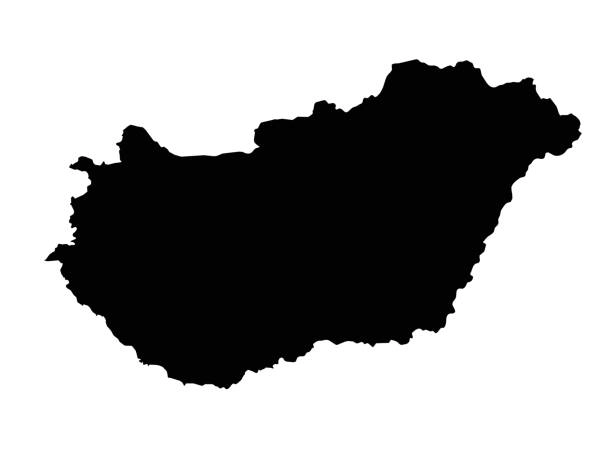1
Tour Package
- Home
- Tour Packages
- International Tour Packages
- Europe
- Hungary
Hungary Tour Packages
- Capital: Budapest
South India’s Trusted Travel Experts
Currency Name
Hungarian Forint
Climate in Hungary
9°C to 20°C
Languages Speaking
Hungarian, English, German
Hungary's Ideal Season
June - August
Essential Tips for Travelling to the Hungary
- ATMs may not be very common, but they are still accessible across Hungary.
- Card usage might be restricted in rural or less developed regions.
- Locating a bank in Hungary is generally convenient and straightforward.
- Hungary permits alcohol consumption legally from the age of 18.
- Locals in Hungary are admired for their friendliness and warm hospitality.
- Airfares from India tend to be cheaper during the month of October.
Hungary's – Visitor Insights & Travel Overview

Total Annual Visitors
2.483 Million
- Male 51%
- Female 49%
Top Visitors from India
- Chennai
- Delhi
- Hyderabad
- Pune
- Jaipur
- Mumbai
- Bengaluru
- Kolkata
- Ahmedabad
- Lucknow
Essential Facts and Insights About Hungary
Situated in the heart of Central Europe, Hungary fascinates travelers with its scenic beauty, rich history, countryside charm, lively folk traditions, and vibrant capital city. Be it the colorful blossoms of spring, sunny summer days, autumn’s golden tones, or the enchanting snowy winters, the country offers diverse seasonal experiences for every visitor.
From housing Europe’s largest thermal bath to being home to the continent’s biggest synagogue, Hungary is filled with remarkable highlights you can explore through our Hungary tour packages. Take a closer look into Hungary’s history, traditions, cuisine, and vibrant lifestyle for an enriching holiday.
Hungary is a captivating country in Central Europe, bordered by Austria, Slovakia, Romania, and several other nations, making it a cultural crossroads. Its history dates back more than a thousand years, shaped by Magyar tribes, the Ottoman Empire, and the Austro-Hungarian Monarchy. Today, Hungary is known for its blend of medieval castles, Baroque towns, Art Nouveau architecture, and thriving urban culture. The capital, Budapest, is often called the “Pearl of the Danube,” and is divided by the river into the hilly Buda and the bustling Pest. Hungary is also one of the few places in Europe where natural hot springs feed centuries-old thermal baths, offering relaxation to travelers all year round. Beyond the capital, the countryside features vineyards, historic fortresses, and charming villages where folk music, dance, and crafts are still part of everyday life.
Capital: Budapest – famous for its architectural beauty and Danube River views.
Currency: Hungarian Forint (HUF). Euros are sometimes accepted in tourist areas, but local currency is best.
Language: Hungarian (Magyar), one of Europe’s oldest and most unique languages.
Population: Approximately 9.6 million.
Time Zone: Central European Time (CET).
Famous For: Thermal baths, paprika, Tokaji dessert wine, historic castles, and folk festivals.
Interesting Fact: Hungary has the largest thermal water cave system in the world, and over 1,000 natural springs.
Money Matters: While Budapest has plenty of ATMs and banks, rural towns may have limited access, so carry cash. Credit cards are widely accepted in cities but less so in smaller villages.
Transportation: Budapest has an efficient metro, bus, and tram system. Ticket validation is mandatory — inspectors are strict. Intercity trains and buses connect most towns at affordable prices.
Local Etiquette: A polite handshake is a common greeting. When entering someone’s home, it is customary to remove your shoes.
Tipping: A 10–15% tip is appreciated in restaurants. Some establishments add a service charge to the bill — check before tipping extra.
Health & Safety: Tap water is safe to drink. Hungary is one of the safer countries in Europe, but remain cautious of pickpockets in crowded areas.
Connectivity: Free Wi-Fi is common in hotels, cafés, and public areas in Budapest. Buying a local SIM card is inexpensive.
Budget-friendly Hungary tour packages allow travelers to explore Budapest’s iconic landmarks, soak in thermal baths, and discover charming towns like Eger and Pécs. Affordable stays, guided tours, and local dining options ensure you enjoy Hungary’s best without overspending.
Hungary offers a mix of natural wonders and cultural treasures:
Geography: Flat plains (Great Hungarian Plain), scenic lakes (Balaton), and rolling hills.
Architecture: Roman ruins, Gothic cathedrals, Ottoman-era mosques, Baroque castles, and modern art districts.
Lifestyle: A mix of traditional folk life in the countryside and cosmopolitan city living in Budapest.
Festivals: Summer music festivals like Sziget, springtime Easter markets, and Christmas fairs in December.
Budapest: One of Europe’s most stunning capitals, with architectural gems and romantic Danube views.
Thermal Baths: Relax in natural hot springs like Széchenyi and Gellért.
Food & Wine: Authentic dishes like goulash, chimney cake, and award-winning Tokaji wines.
History: Castles, synagogues, Ottoman relics, and UNESCO sites.
Affordability: Compared to Western Europe, Hungary offers excellent value for accommodation, dining, and attractions.
Nightlife: Budapest’s ruin pubs (bars in abandoned buildings) create a one-of-a-kind party atmosphere.
Spring (April–June): Pleasant weather, blooming flowers, and fewer crowds. Perfect for city tours.
Summer (July–August): Peak tourist season with festivals, concerts, and lakeside fun at Balaton. Temperatures can get hot.
Autumn (September–October): Ideal for wine festivals, cool weather, and lower prices. This is also when flights from India are usually cheapest.
Winter (November–February): Christmas markets in Budapest, ice skating at City Park, and cozy thermal baths under the snow.
Take a Danube River Cruise: See Budapest’s Parliament, Buda Castle, and bridges illuminated at night.
Visit Fisherman’s Bastion: Known for fairy-tale turrets and panoramic city views.
Soak in Thermal Baths: Experience outdoor pools and saunas in Széchenyi or Gellért Baths.
Explore Lake Balaton: Go sailing, cycling, or relax at lakeside resorts.
Discover Eger: Famous for its castle and the “Valley of Beautiful Women” wine cellars.
Walk Through Great Market Hall: Shop for paprika, embroidery, wines, and Hungarian sausages.
Attend Festivals: From the Budapest Wine Festival to Sziget Music Festival.
Hungary is perfect for authentic souvenirs and unique finds:
Paprika Powder: A must-buy spice used in almost all Hungarian dishes.
Tokaji Wine: A world-famous dessert wine with a history dating back centuries.
Embroidery & Folk Art: Traditional Matyó designs and Kalocsa needlework.
Herend Porcelain: Hand-painted fine porcelain known worldwide.
Local Markets: The Great Market Hall in Budapest is ideal for food items and crafts, while Andrassy Avenue offers luxury shopping.
Do’s:
Try the local cuisine beyond goulash, such as stews, pastries, and soups.
Carry some Hungarian Forints as many small shops do not accept cards.
Use public transport passes in Budapest to save money.
Respect cultural sites, especially churches and synagogues.
Don’ts:
Don’t assume all Hungarians speak English; learn a few greetings like “Köszönöm” (Thank you).
Don’t forget to validate your ticket before boarding trams or metros.
Avoid comparing Hungarian culture directly with neighboring countries — locals are proud of their heritage.
Don’t rely only on taxis; some may overcharge tourists.
Gulyás (Goulash): A hearty beef soup flavored with paprika.
Pörkölt: A rich meat stew often paired with noodles.
Lángos: Fried flatbread topped with sour cream, garlic, and cheese.
Halászlé (Fisherman’s Soup): Spicy river fish soup with lots of paprika.
Hortobágyi Pancakes: Crepes stuffed with meat and covered in paprika sauce.
Dobos Torte: A sponge cake layered with chocolate cream and topped with caramel.
Kürtőskalács (Chimney Cake): Sweet pastry grilled over an open fire and coated with sugar or cinnamon.
Tokaji Aszú Wine: Called the “wine of kings,” it’s Hungary’s most prestigious dessert wine.
Hungary has a deep-rooted cultural identity shaped by centuries of history. Folk traditions remain alive in rural regions, where locals still wear embroidered costumes, play traditional instruments like the cimbalom, and perform lively dances. In Budapest, the arts flourish in grand opera houses, contemporary galleries, and music halls. The Hungarian State Opera and Franz Liszt Academy of Music are world-renowned institutions. The country also celebrates its heritage with numerous festivals, from Easter markets to harvest carnivals. Museums like the Hungarian National Museum and the Museum of Fine Arts preserve treasures from Roman times to modern art. Literature, too, is central, with Hungarian poets and writers gaining international recognition.
All Packages
Visa Information
Check visa requirements before traveling, ensuring a smooth entry and compliance with destination regulations
Health and Safety Tips
Prioritize health, stay hydrated, follow safety guidelines, and maintain personal hygiene for a secure journey.
Currency and Tipping
Familiarize with local currency, consider customary tipping practices for respectful and seamless travel experiences.
Let’s Stay in Touch
- +91 99404 63566
- Info@tripbygenie.com
Book Your Dream Vacation Today!

